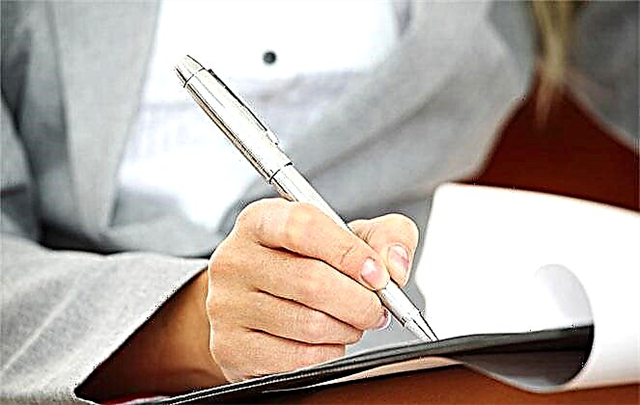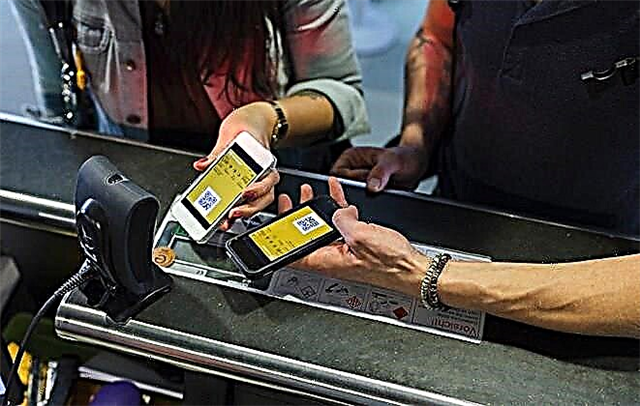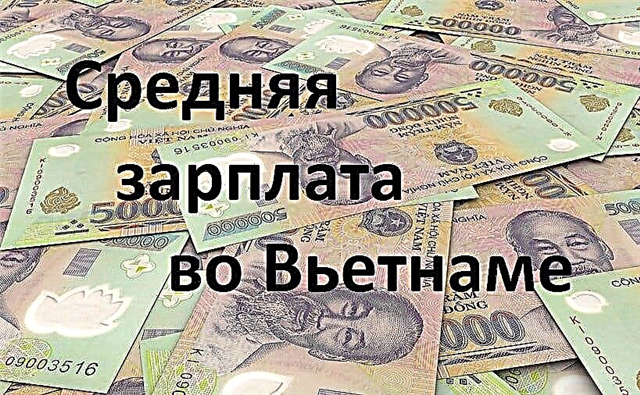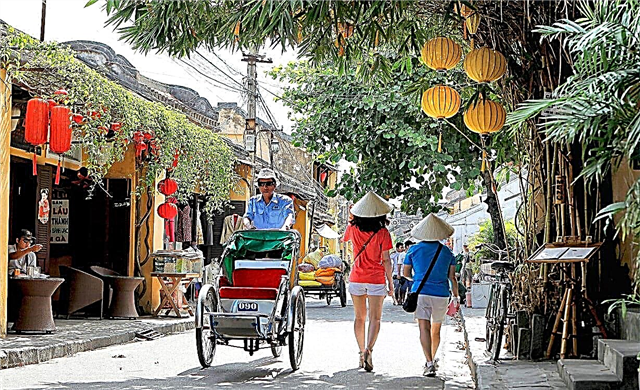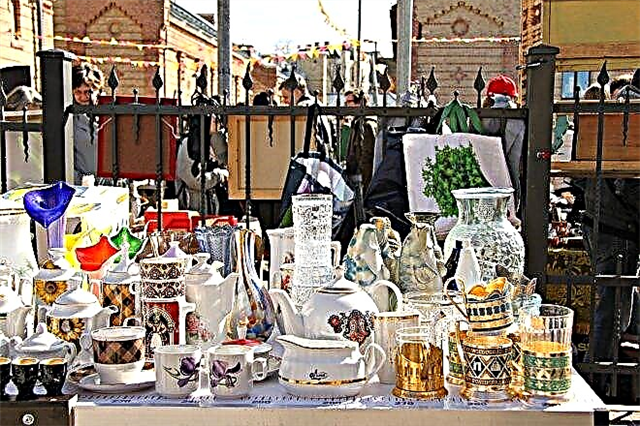Places where you can buy used items very cheaply are very popular in Europe. And if in the Middle Ages this was common mainly among the poorest population, today you can buy truly rare items at such sales. For example, flea markets in Germany attract a lot of visitors from both locals and foreigners. Such events are interesting for many reasons - here you can save a lot, as well as buy vintage things that no one else will have.
Varieties of flea markets in Germany
The first flea market appeared in Germany in the 15th century. Gradually, places of sale of used things and antiques became more and more large-scale, the quantity and range of goods sold increased.
To date, German flea markets are divided into different types depending on the items exhibited there, the purpose, time, place and features of the event.
Flea market types:
- Professional. Such markets are organized by professionals, they are held in free territories. Parking and entrance fees may often apply. It sells not only used (second-hand) things, but also new goods. This is especially true for antiques.
- Thematic - products are grouped into specific categories, for example: books, baby products, records, bicycles, jewelry, and others. Information about where and when the event opens and what its main theme will be is usually given on the Internet or in magazines the day before. For example, the timetable for all flea markets in Munich can be found on the city's official portal.
- Charitable. All income received from the sale of things goes to charity: to orphanages, shelters, centers for helping homeless animals, or donations to underdeveloped countries.
- Student - here, as a rule, students sell everything that is no longer useful in further education: textbooks, maps, globes, synopses. The events are often very fun, with musical accompaniment and performances by youth theaters.
- Nightly. These markets are usually more like nightlife - beer flows like a river here, snacks are sold, loud music sounds, and the entrance is often paid. Trading begins in the afternoon and lasts all night. Conveniently, such sales can be visited by those who work late. The most popular night flea markets in Germany are Munich (since 2007) and Leipzig (since 2000).
- Timed to coincide with some event, holidays. Typically, these flea markets are held on Easter, city day, or regularly on weekends or on a specific day of the month.
Often in Germany, you can see the so-called private sales. Those owners who have accumulated enough unnecessary things, but who do not have time to wait for the next flea market, simply put them up near the house or garage. To grab the attention of potential buyers, owners play music and often offer free drinks and pastries.
Take a sociological survey!
Flea market season length
The flea market season, which in German sounds like Flohmärkte, covers many cities in Germany - both large metropolitan areas (Berlin, Munich, Frankfurt, Hanover) and small towns (for example, Rosenheim, Freiburg, Baden-Baden).
Massive open-air flea markets in Germany usually take place during the warmer months. From March to November, traders of antique or simply unnecessary things take their places in the areas specially designated for the market.
In order to present a product for sale, you need to pay: 1 trading place will cost from about 7 to 15 euros. The market is usually free to enter, but in some cases, such as when children are sellers, visitors are charged.
By the way, children's Flohmärkte are not uncommon in Germany. Children have the opportunity to earn money by selling their old toys or unnecessary things. Here you can also buy baby care products such as strollers, clothing, car seats or furniture. For pragmatic Germans, this is a great way out not to spend a lot of money on things that are needed for a short time.
Who in Germany visits flea markets
Among the visitors to flea markets are both Germans and visitors. Locals are happy to visit flea markets in search of bargains. At the same time, every cent saved is important to them, so they bargain mercilessly.
As a rule, each village has its own flea markets of small scale, but operating constantly. The hottest goods here are furniture, dishes, books, records and other rarities.
Tourists and visitors are more interested in large-scale traditional flea markets, where the national flavor is clearly felt. Often the area of such markets extends for several kilometers, and the organizers add the prefix "most" to their names: the longest, largest, oldest flea market.
What can be found on the shelves of flea markets
In German flea markets, merchandise can generally be categorized into two large groups - things and antiques.
Antiques can be of many different categories: vinyl records, figurines, books, jewelry, dishes, cutlery and kitchen utensils, furniture and candlesticks. Everything is sold from used goods - from clothes and shoes that have not been worn for a long time, to household appliances, furniture, tools.
It is generally not permitted to put up for sale cars and car parts, weapons and military equipment, food, plants, animals, or magazines or films that contain adult content or propaganda of violence.
Who organizes special charity events
It is sometimes customary in institutions to organize special charity events - Spenden-Flohmarkt. For example, students are asked to bring items from home that will be displayed at a flea market from the school. The money that will turn out to be raised from sales will be used to finance the needs of the institution.
Such events are organized not only by schools, but also by other state institutions - kindergartens, museums, universities.
The most popular flea markets in Germany
Flea markets in Germany are real attractions that allow you to feel the spirit and flavor of the country. Where else, like at a flea market, you can buy antique antiques or unique authentic souvenirs in a single copy for a pittance.

Let's take a closer look at which cities the most sensational bazaars are located in.
In Bonn
One of the largest flea markets in Germany is the Bonn flea market. Here in the Rheinaue Park, on an area of more than 160 hectares, 1.5 thousand sellers of second-hand goods gather every year.
Renting a seat costs 7 euros - for this money, anyone can display everything that they no longer need, including clothes, shoes, children's toys, kitchen utensils, as well as goods of interest to collectors: coins, jewelry, dishes, records, books ... You can reserve your seat online at the Flohmarkt in der Rheinaue website.
And after that you can have an interesting time getting to know the sights of the city.
In Frankfurt
It is interesting and exciting to spend a Saturday day in Frankfurt am Main at the local city flea market. It is pleasant to wander here among the stalls with a variety of gizmos - figurines, trinkets, records, discs, rare editions of books, and other antiques.
Since the whole action takes place on the banks of the Main River, an atmosphere of romance hovers around. After admiring the antiques and art, you can dine or just have a cup of coffee at a nearby cafe.
Opening hours - from 9 to 14 hours, from June 2021 the sale of bicycles is prohibited. You can register for participation in the Flohmarkte section of the city portal.
In Stuttgart
Stuttgart is also not complete without a flea market in the spring and summer. You can visit the market on Karlsplatz square, in the very heart of the city. Opening hours 8: 00-16: 00 on Saturdays.
New things are not sold here, it is forbidden, but lovers of vintage style can only be envied: china dishes, bookcases, miniature dressers, old cameras, felt hats, ties, gloves. Any thing has its own history and unique charm. There is a little provincial, but extraordinarily interesting and extraordinary atmosphere. For a schedule of themed markets, visit the Stuttgarter Flohmarkte website.
In the capital
Berlin gives flea market lovers the opportunity to enjoy valuable shopping all year round. Flea markets in the capital operate regardless of the weather outside and the season.
The Kreuzboerg flea market (Kreuzberg) is well known to connoisseurs. There is a huge selection of clothes, handbags and handmade jewelry, colored carpets, books, musical instruments, paintings. All the fun is accompanied by the unobtrusive music of local novice musicians.
Depending on the purpose of their shopping, tourists can visit various themed flea markets in the German capital. There is the Fesche Lotte clothing market, where designer vintage items, vintage hand-made jewelry, just inexpensive clothes in excellent condition are presented, which depended in the wardrobes of residents. Look for the flea market at Kranoldplatz in Neuköln.
For books and antiques, head to the market in the Bode Museum area, and for art and craft supplies, visit Fairbelliner Platz.
Do not forget to visit the popular flea market of the capital on Boxhagener Platz, where you can find all kinds of household items, books, paintings, decor items. A large playground for children and food stalls guarantee a pleasant and relaxing time.
Others Flohmärkte in Berlin - on the official city web portal.
In Hanover
In Hanover, flea markets are held every second Saturday of the month. The venue of the event is the Balhofplatz square.
Attention is focused mainly on children's things - the so-called children's flomarkt or Kinderflohmarkt. Visitors come to exchange or buy goods for children - cradles, strollers, baby monitors, toys and other goods, often almost new, that can serve the next owner a good service.
Counters are very common, where children sell their property themselves.
In Pfaffenhofen
In the list of recommended flea markets to visit - flomarkt in Pfaffenhofen. This is an evening event (from 4:00 pm to 11:00 pm). Everything is carried out under the light of kerosene lamps, giving the place a touch of romance and mystery.
A large selection of very decent looking antiques. The pleasant shopping experience can be further enhanced by tasting the freshly prepared trout and mackerel kebab - Steckerl fisch.
In Munich
Every year, the largest flea market not only in the country but throughout Europe is organized in Munich. A huge number of visitors come here.
If you still don't know how the flea market in Munich works, keep in mind that you can visit it on the very first spring Sunday from 4 pm to 6 pm.
The fest is held in the Theresienwiese meadow. Buying inexpensive original souvenirs is accompanied by friendly gatherings over a glass of beer with Munich or Bavarian sausages, which are prepared right here.
By the way, visiting a flea market can be combined with a trip to one of the largest food markets in the country - Viktualienmarkt. It is a half-hour walk from Theresienwiese, next to the Marienplatz, Munich's central square.
Here you can buy all kinds of delicacies - from tropical fruits and vegetables to meats and cheeses. You can try freshly prepared Munich sausages or krutzels with a glass of beer in the Biergarten - "beer garden", which is located right in the center of the market.
For even more information about shopping in Munich not only at flea markets, see the article “Munich: Shopping, Fairs, Discounts, Shops”.
In Hamburg
One of the districts in Hamburg - St. Pauli - is known for nightlife lovers for its many bars and discos. Every summer Wednesday from 16:00 to 23:00, the flea market or Nachtflohmarkt opens here for collectors of antiquities and simply those who want to purchase unique rare trinkets. There are especially many unusual decorations on the marine theme.
In Bremen
One of the oldest and largest flomarkets in Germany is concentrated in Bremen. For more than 20 years, the city center has been organizing the sale of antiques and other trifles. There are usually no less than 20 thousand visitors.
You can find a sale near the city center, in Bürgerweid. In case of rain, the event is moved to the Hansa-Carré shopping center at Pfalzburger Strasse, 41.
In Cologne
On Saturdays there is a flea market in the city of Cologne - Kölner Stadt Flohmarkt. Since it is located near the university, the assortment is more focused on the student audience. It is easy to find books, textbooks, records, household appliances here.
Anyone can display their unnecessary notes, clothes or other little things for 38 euros. Charity flea markets are not uncommon here, they usually take place in the evening or at night.
In Dusseldorf
There is another Saturday market - on Aachener Platz - in Düsseldorf. Only here there is an opportunity to very cheaply buy really unique antiques - newspapers, postcards, magazines, albums, videotapes, photo albums.
On the territory of visitors, a variety of treats await - German sausages, snacks, coffee. The reigning festive atmosphere will make you come back here more than once.
Many smaller flea markets can be found in the vicinity of Düsseldorf: Essen, Bochum, Dortmund, Münster and other small towns.
Where else to visit flea markets in Germany
For the past 18 years, one of the most significant nightlife events in Saxony-Anhalt has been the Magdeburg Night Flea Market. The fair attracts thousands of visitors every day. The dates and opening hours of the flea market in Magdeburg can be viewed on the Nachtflohmarkt website.
Other popular Flohmarkt in Germany: Freiburg (the market is in the Wiehre district), Ingolstadt (Selgros flea market), Baden-Baden (Flohmarkt Kaiserallee at Flugstrasse, 29).
The nearest flea markets, coming in October, will take place in Nuremberg (Fürther Strasse, 205), in Dresden (Elbeflochmarkt on Käthe-Kollwitz-Ufer; flea market in the Press House at Devrienstraße, 9), in Augsburg (on Friedberger Strasse, 134). See all the upcoming flea markets in Germany, also in 2021, on Markt.de or Marktcom.de.
Flea market rules
Flea markets are a special area, unlike regular supermarkets or boutiques. There are unspoken rules here, following which you can make the most incredible and profitable purchases. Helpful hints for newcomers to flea shopping:
- you need to come early - this is the opportunity to be the first to see and acquire the desired thing;
- it is advisable to take money in small denominations, including coins - goods purchased without change, the seller is more likely to agree to give up at a reduced price;
- inspect the item very carefully before paying for it, since the product return service does not work here;
- outline a list of necessary things in advance, concentrate on it, otherwise you risk buying a lot of unnecessary things;
- if you think that the price of a product is greatly overpriced, feel free to bargain - often the seller can easily give the item for half of the initially named cost.
When going shopping at a flea market, it is better to dress discreetly, excluding jewelry or expensive accessories from your wardrobe for the time being.So the chances of a successful trading outcome will be much higher.
In order to find the desired bazaar, it is usually enough to enter the name of the city on the Internet in the search box Flohmarkt. As a result, all city flea markets with addresses for which it is easy to make a route will be highlighted on the map. A complete list of German Flomarks by region can be found at Markt.de.
Reasons for the popularity of flea markets among the Germans
Flea markets are very popular among Germans. There are several reasons:
- It is profitable and practical. It is difficult to argue with this, especially when it comes to purchasing children's things. Why overpay for a new stroller or rollers that will no longer be needed in a few years. It is easier and more economical to buy them at a flea market for a very reasonable price.
- Retro is fashionable. Vintage items have not gone out of style for several decades. This applies to both clothing and furniture. Therefore, lovers of rarity are regular visitors to flea markets - original antiques can be purchased here for a penny.
- We do good. Oddly enough it sounds, but selling unnecessary more things, you can help those who need it. Social activity is one of the most important factors for many people in Germany, which determines their participation in flea markets.
- Entertainment is also important, as many Flohmärkte are very fun, accompanied by music, beer and street food in the open air. A variety of contests are often offered to visitors, for example, the very popular karaoke at the Berlin flea market in Mauer Park.
In addition to the listed reasons for visiting a German flea market, everyone may have their own personal reasons. Someone suddenly decided to add original retro decor to the living room interior, while someone just got bored of sitting at home on a weekend. In any case, visiting a flea market is always exciting, interesting and useful.
Output
Flea markets in German cities are not just bazaars with old and unnecessary second-hand goods. Often people gather at the flea market as for a holiday or a bohemian get-together, where you can chat, have a tasty snack and buy unique antiques or vintage things for a very reasonable price.
Such events are common throughout the country, so you can visit them not only in any large city, but even in small villages.

